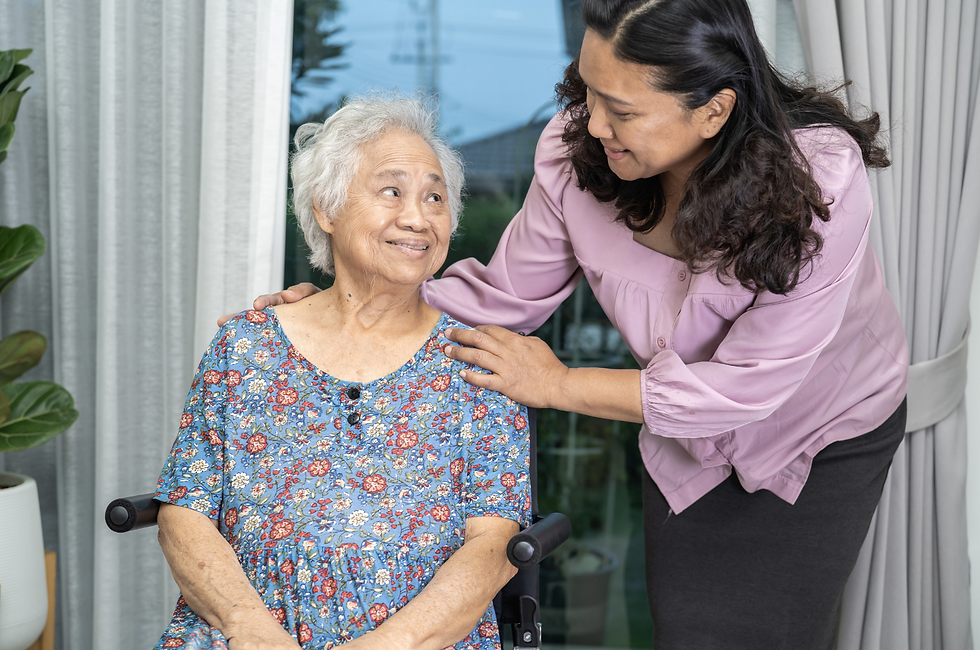Are You Making Things WORSE?
- Senior Support Services

- Jan 17, 2019
- 3 min read
Updated: Jan 28, 2019
Many individuals face sad and heart-wrenching news that your loved one has been diagnosed with Alzheimer’s. Most people have not been prepared on how to deal with this situation. It can be one of the most stressful situations of your entire life and you may be unintentionally making things worse. If you're a family caregiver in need of help, before you read this, just give yourself a pat on the back because you are doing a great thing, or even if you are just a curious mind, know that
"Educating the mind without educating the heart is no education at all" - Aristotle
You are the one who can change
You have the cognitive skills to change
Here are some tips that can help make things better
Energy
Individuals' negative or positive energy is the first thing we notice while interacting. Energy is the quickest way for people to connect.
Tip:
Track your good days and bad days at work; when you get home track the mood of your loved one. Notice that when you have a bad work day the chances of you having a bad situation at home is likely.
Take four deep breaths before you walk into your home: If you can leave the negative thoughts and feelings on the other side of the door and show up with confidence, empathy, and love, things will get better.
Who Cares?
Think to yourself what truly matters and if you have not done anything for yourself as a caregiver. If not, you are negatively impacting your health and wellbeing. The individual under your care needs you to be positive and fully attentive. Look at your to-do list and think about what needs to be done and what can wait.
Tip:
If you have on your to-do list to give your loved one a shower and it is just not happening then that is OKAY. Try again later. Get rid of the tunnel vision that things need to happen immediately.
Quality over quantity. Sit down and listen to your loved one. If your person wants to have tea instead of showering, then enjoy that moment with them and let go of that to do list. What truly matters is those special moments you both will cherish.
Pause
Individuals with Alzheimer's may freeze or stop what they are doing. Your first instinct is often to go and try to help or talk to them about what they need to be doing.
Tip:
PAUSE.. Sometimes our loved ones' brains are just is not up to speed yet. Think of it as the neurons misfiring and their brain is not cooperating. They could know exactly what to do and not be able to do it. Give them time to reset. Remember your energy during these moments. Your loved one can feel emotions and will comprehend when someone is upset, impatient and not understanding.
Procedural Memory
Procedural memory is responsible for knowing how to do things and is part of our long-term memory. Individuals with Alzheimer's do not lose their procedural memory. Use this to your advantage.
Tip:
Tweak the routine to change the outcome of a situation.
Example:
If your loved one always wants to leave the house because they eat breakfast on the side of the table that they can see the keys, switch where they eat at the breakfast table. Keep the entire routine the same just make a small tweak.
Example:
Your person walks to the bathroom and then they stop what they are doing. Switch the side you walk on with your person and see if they can trigger a different outcome without any disruption.
Changing the routine without any disruption is a small but powerful tool.
There can be an emotional bruise when your loved acts aggressively or unresponsive to your care. When you see someone who needs help and you genuinely do not know how to do so, it can be one of the worst feelings imaginable. Build your confidence, and do not shut down. Every day is a new day.








Comments